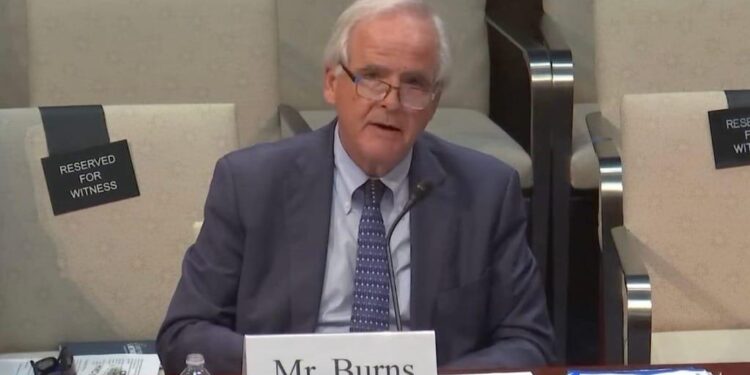The Managing Director of the Nigerian Railway Corporation (NRC) has publicly accepted responsibility for the recent derailment of the Abuja-Kaduna train, a development that has drawn significant national attention. The incident, which occurred amid growing concerns over railway safety standards, resulted in disruptions and raised urgent questions about the state of the country’s rail infrastructure. In a candid admission, the NRC boss acknowledged the lapses that led to the derailment, signaling a commitment to address the underlying issues and restore public confidence in Nigeria’s rail system.
NRC Chief Assumes Responsibility for Abuja-Kaduna Train Derailment
National Railway Corporation (NRC) Chief Executive Officer officially took responsibility yesterday for the unfortunate derailment incident on the Abuja-Kaduna rail line. In a press briefing, the NRC boss acknowledged lapses in safety protocols and operational management as contributing factors to the accident. Affirming the corporation’s commitment to transparency, the CEO assured the public that immediate investigations are underway to identify root causes and prevent future occurrences.
- Full safety audits scheduled across all main rail routes
- Enhanced staff training programs prioritized
- Collaboration with federal safety agencies intensified
- Compensation processes for affected passengers initiated
Below is a snapshot of the key facts surrounding the derailment and NRC’s response:
| Aspect | Details |
|---|---|
| Date of Incident | April 15, 2024 |
| Location | Between Abuja and Kaduna Stations |
| Number of Passengers | Approx. 200 |
| Casualties | Minor injuries reported |
| NRC Action Plan | Immediate safety reviews and public engagement |
Investigation Reveals Key Safety Lapses and Infrastructure Challenges
The recent probe into the Abuja-Kaduna train derailment has brought to light significant shortcomings in both safety protocols and the state of railway infrastructure. Preliminary findings indicate that critical maintenance schedules were not adhered to, contributing to wear and tear that compromised track integrity. Furthermore, the investigation highlighted lapses in emergency response preparedness, including inadequate training among staff responsible for crisis management. These oversights collectively culminated in a scenario that could have been prevented with stringent operational controls.
Key issues identified include:
- Delayed track inspections: Routine checks were either skipped or conducted superficially.
- Faulty signaling systems: Malfunctions went unreported, increasing collision risks.
- Insufficient staff training: Personnel lacked updated knowledge on safety procedures.
- Outdated infrastructure components: Many parts failed to meet current safety standards.
| Issue | Impact | Recommended Action |
|---|---|---|
| Track Maintenance Gaps | Increased derailment risk | Implement strict inspection regimes |
| Signaling Faults | Operational delays and safety hazards | Upgrade and monitor system functionality |
| Training Deficiencies | Poor emergency response | Regular safety drills and certifications |
| Infrastructure Decay | Reduced operational lifespan | Timely replacement and modernization |
Calls for Comprehensive Overhaul and Enhanced Regulatory Oversight
In the wake of the Abuja-Kaduna train derailment, urgent calls have been made for a sweeping reform of Nigeria’s railway infrastructure and regulatory bodies. Industry experts, civil society groups, and political stakeholders are pressing for a bold approach that goes beyond superficial fixes, emphasizing a thorough evaluation of current operational standards and safety protocols. The incident has starkly highlighted systemic weaknesses such as outdated equipment, insufficient maintenance routines, and gaps in oversight mechanisms.
Key demands from the public and advocacy groups include:
- Implementation of state-of-the-art safety technologies across all rail lines
- Regular, transparent audit processes conducted by independent regulators
- Enhanced training programs and accountability for railway personnel
- Establishment of a centralized incident reporting system for timely response
| Aspect | Current Status | Recommended Action |
|---|---|---|
| Infrastructure | Antiquated tracks and trains | Comprehensive modernization program |
| Regulation | Fragmented oversight committees | Unified regulatory authority with clear mandates |
| Safety Checks | Irregular and inconsistent | Mandated monthly inspections by certified inspectors |
Insights and Conclusions
The recent Abuja-Kaduna train derailment has once again highlighted critical challenges within Nigeria’s railway sector. With the NRC boss publicly accepting responsibility, questions remain about the steps that will be taken to prevent such incidents in the future. As investigations continue, the industry and commuters alike await concrete measures aimed at ensuring safety and restoring public confidence in the nation’s rail services.














Did a Restorer Secretly Paint Italian Prime Minister Giorgia Meloni Into a Historic Church Fresco?